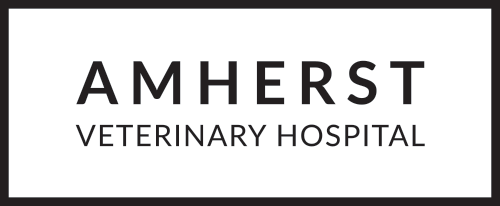The weather in Vancouver is finally turning to sunny days and many of us are planning camping trips, long hikes or even just a day out at the lake. If your dog will be joining you, consider taking a first aid kit for your furred companion, especially if access to veterinary care during your trip may be limited.
Below is a list of items to include in the first aid kit:
- Benadryl (2-4 mg/kg every 8-12 hours) use to calm itchiness, swelling and hives caused by stings, insect bites or other allergic reactions
- Bandage material: Vet wrap, telfa pads, conform gauze, elasticon, gauze wrap, 1″ tape
- Cotton pads or gauze squares
- Triple Antibiotic Ointment – for minor wounds
- Saline flush – for flushing wounds and debris from the eyes
- Kwik Stop – to stop bleeding from torn or broken nails
- Nail trimmers
- Chlorhexidine Scrub (Hibitane) – to disinfect wounds
- Alcohol Rub – great to disinfect materials such as tweezers and nail trimmers but do not pour on a wound as it really stings.
- Hydrogen Peroxide (1-2 ml/kg) – used to induce vomiting in case of accidental ingestion of a toxin or foreign object. Not every case of ingestion warrants vomiting as caustic substances or sharp objects can cause damage to the esophagus if vomited up. Ideally consult a veterinarian before administering.
- Tweezers
- Cold pack (activated)
- Steri-strips – adhesive strips which can be used to close small wounds
- Tick Twister
- Hemostat – to pull off a broken nail, can be purchased from a fly fishing store
- Comb – to remove burrs from the fur
- Battery operated clippers – especially for a long haired dog; clip around a wound to properly clean
- Gloves
- Petroleum Jelly – to lubricate the thermometer
- Thermometer – use rectally; normal temperature is 38-39 degrees Celsius
- Bandage scissors
- Clean towels
- Sling Material – If you have a large dog that cannot walk a sling provides some relief in being able to move him/her; or if you have to carry a small dog for any distance.
- Syringes – to administer oral medication/flush wounds. Best to have various sizes ranging from 3CC to 60CC
- Muzzle or material that could be used as a muzzle – if injured or in pain even the gentlest dog may try to bite.
- List of Emergency phone numbers – Poison Control (604) 682-5050; Amherst Veterinary Hospital (604) 221-7771; Vancouver 24HR Animal Emergency (604) 734-5104.
Ensure you keep these items in a waterproof bag and check and replace expired medication before your trip. NEVER administer human drugs or prescriptions to your pet without first consulting with your veterinarian as many everyday medications we use may be poisonous to your pet (see Poisons in your Purse).
We wish you and your pet a safe and fun filled Spring and Summer!

